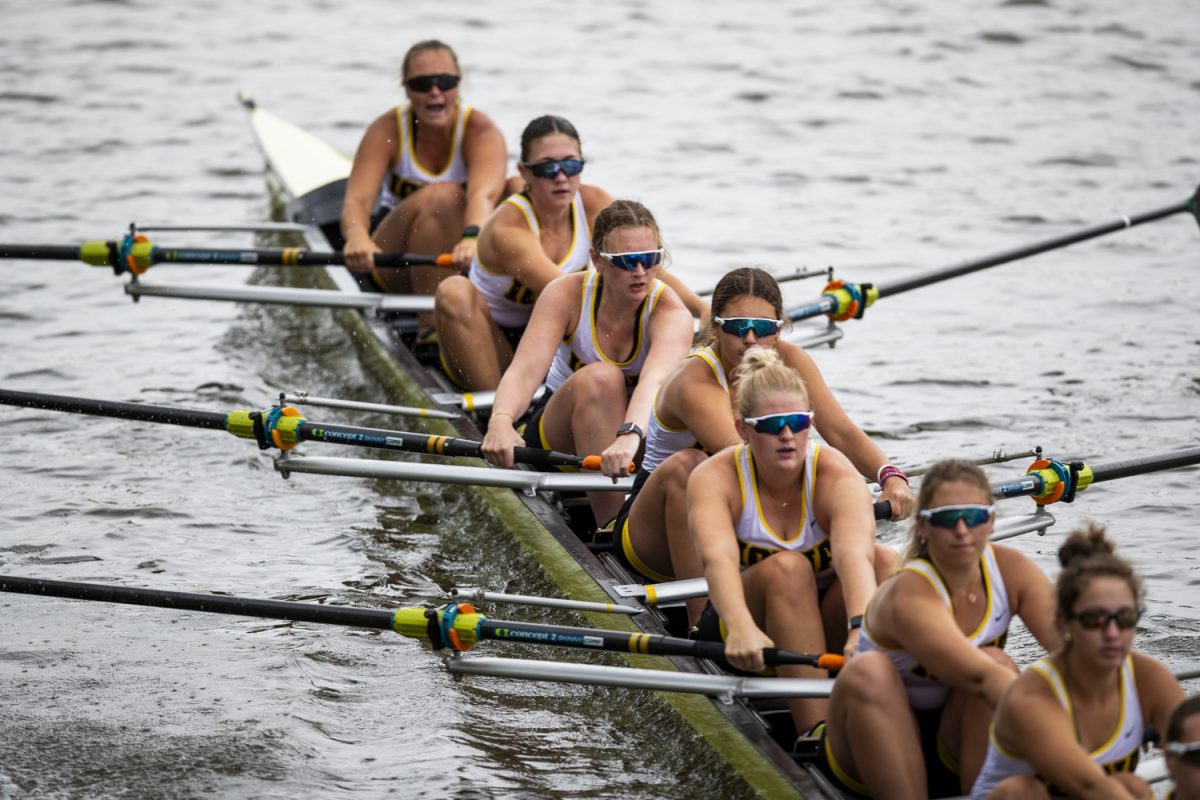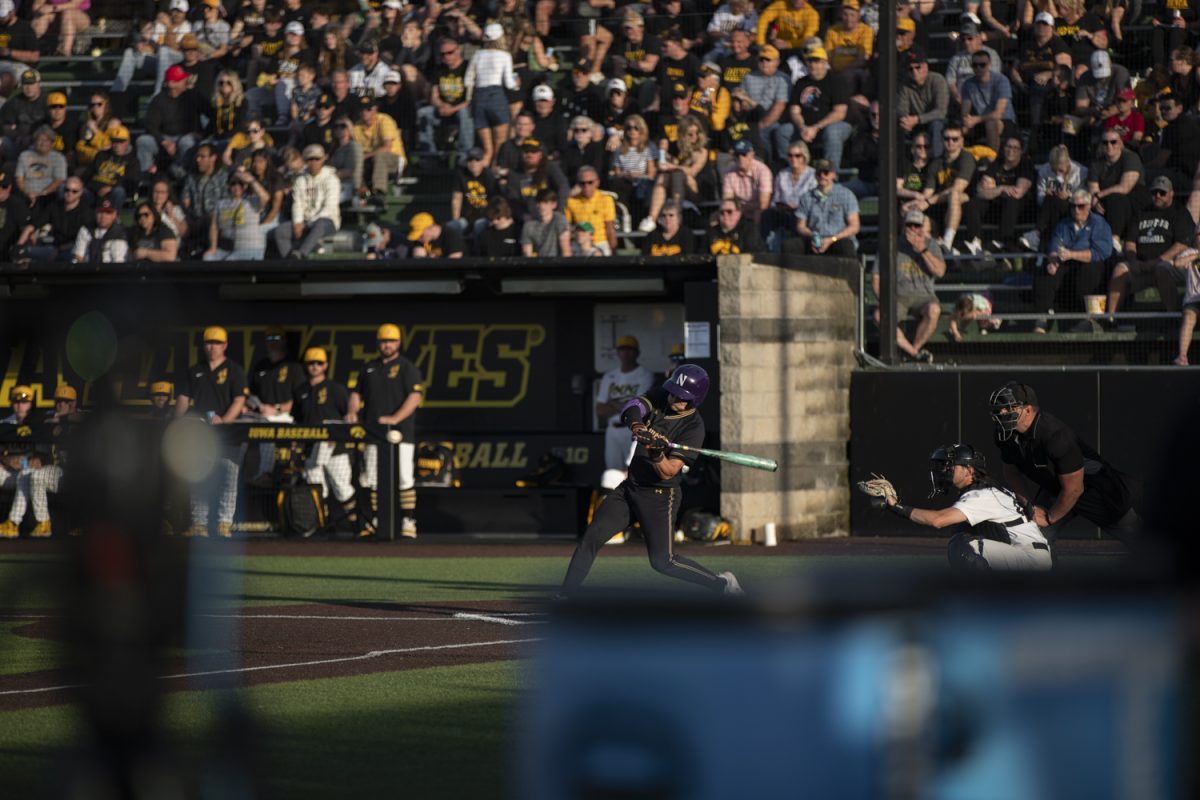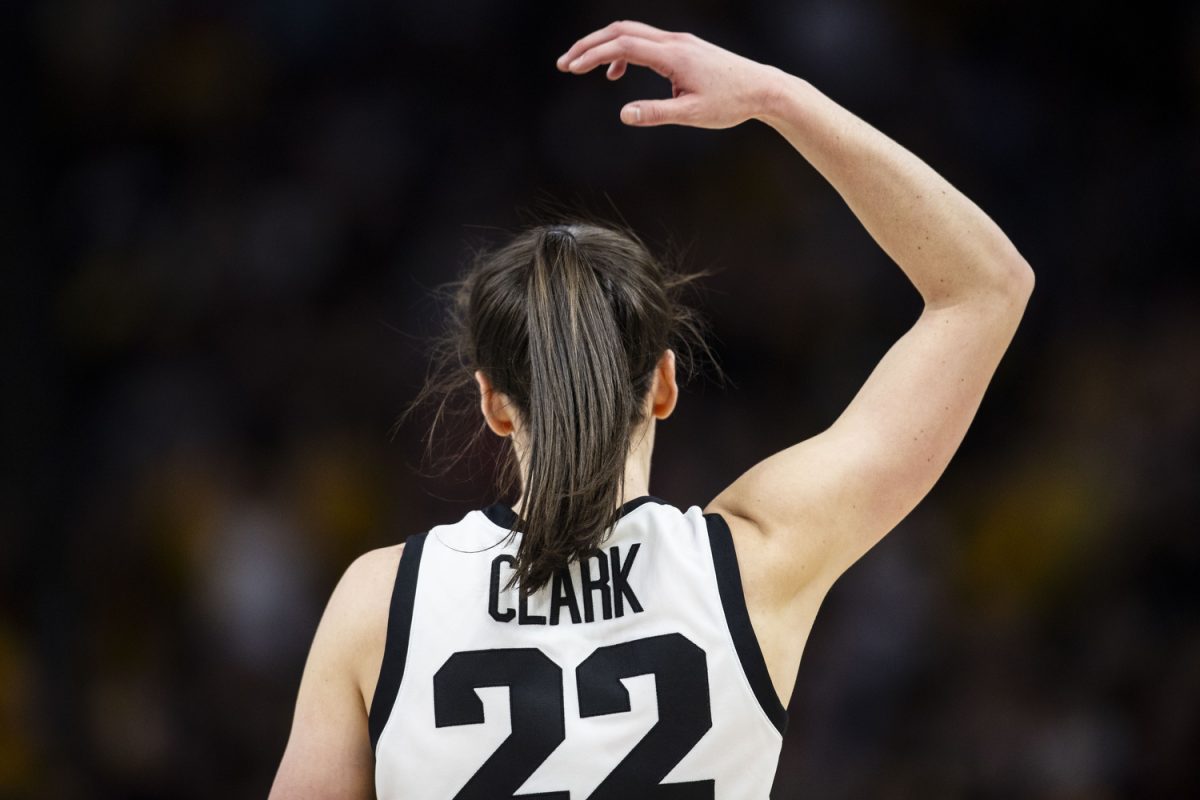Sydney Hoerr often tries to carry the weight of the world on her shoulders — so much so that this season the added pressure to be perfect in an expanded role with the team weighed heavily on her mind and on her performance.
In a sport that deducts points for the smallest infractions, a perfect score of 10 is nearly impossible to achieve. And since she picked up the sport at the age of 6, the type-A gymnast has been chasing perfection.
“She’s no doubt a perfectionist,” head coach Larissa Libby said. “One thing goes wrong, and she just can’t get over it, so she beats herself down. The best [athletes] in this sport tend to be the ones who beat themselves up the most because they want so badly to be perfect — and you can’t be perfect.”
As a sophomore, Hoerr competed at all 10 meets in the all-around competition, ending the year with a career-best and team season-high score of 39.400. She recorded the third-highest score on the uneven bars in program history. This season, she has competed in the all-around in half of the team’s meets.
The start of the 2013-14 campaign had its ups and downs for Hoerr, who appeared on the Big Ten Watch List in the preseason, but she struggled to keep the momentum going.
“I have always been that type of athlete,” Hoerr said. “I struggle here and there at the beginning of the season and then kick it up a notch when it matters at the Big Ten championships and NCAA regionals. That’s just how I work.”
Libby agreed with Hoerr, describing her as a “back-half athlete” — referring to her performance late in the season. But this season, that has not been the case. That back-half kick didn’t happen at Big Tens. She remained inconsistent.
Her season high in bars was 9.900 on March 7, but she earned a 9.850 at Big Tens. Her top all-around score of the season was 39.250 on Feb. 28, but she didn’t compete in the event at the Big Ten meet.
The decision to move her in and out of the lineup was one Libby and her staff made to try to change her mentality.
“We pulled her out of the all-around for some meets because she does better when she can just focus on a few events at a time,” Libby said. “And it puts her in a better place mentally when she does well in those events and moving forward into the bigger meets.”
Her inconsistency on the competition floor was further hindered by her evolving role on the team as an upperclassman, which presented new challenges and mental setbacks for the junior.
“I struggled this year mainly because I was trying to take the weight of the team and put it all on my back,” Hoerr said. “But I realized that I didn’t have to do that. It’s more about walking along with them.”
This season, the Bloomington, Ill., native worked diligently with sports psychologists, who helped her to focus more on herself and what was going on in her mind.
Her coach said that was intended to help her block out distractions. However, after a roller-coaster season, there is only so much help that can be provided.
“We tried and tried and tried to talk to her and help her through it,” Libby said. “But when it’s a mental battle, it’s something they have to fix on their own.”






